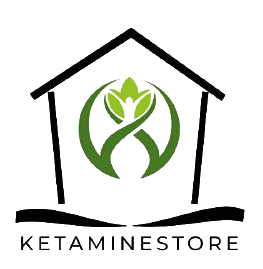KETAMINE
ketamine nasal spray for sale in europe
Ketamine Nasal Spray for Sale in Europe: Availability and Regulatory Landscape
Ketamine nasal spray has gained recognition as a potential treatment option for various conditions, including depression and chronic pain. Understanding the availability and regulatory landscape of ketamine nasal spray for sale in Europe is important for individuals seeking information about its accessibility. In this article, we will explore the availability, regulations, and considerations surrounding ketamine nasal spray in European countries.
1. Prescription-Only Medication:
Ketamine nasal spray is generally classified as a prescription-only medication in European countries. This means that it can only be obtained with a valid prescription from a licensed healthcare professional. Ketamine nasal spray is primarily used in specialized clinics or under the supervision of healthcare providers experienced in administering and monitoring ketamine treatment.
2. Medicinal Products Agency Approval:
In Europe, the approval and regulation of medicinal products, including ketamine nasal spray, fall under the jurisdiction of each country’s respective Medicinal Products Agency or regulatory authority. The specific requirements and processes for approval may vary among European countries, resulting in differences in the availability and access to ketamine nasal spray.
3. Country-Specific Availability:
The availability of ketamine nasal spray may differ across European countries. Some countries may have approved ketamine nasal spray for specific indications, such as treatment-resistant depression, while others may have broader or more restrictive approvals. It is important to consult with healthcare professionals or local regulatory authorities in the specific country of interest to determine the availability and accessibility of ketamine nasal spray.
4. Regulatory Considerations:
Each European country has its own regulations regarding the use, distribution, and sale of ketamine nasal spray. These regulations are in place to ensure patient safety and the appropriate use of the medication. It is crucial to comply with the regulations specific to the country in question and follow the guidance of healthcare professionals who are knowledgeable about the local regulations.
5. Specialized Clinics and Healthcare Providers:
Ketamine nasal spray is typically available in specialized clinics or under the supervision of healthcare providers experienced in ketamine therapy. These clinics follow established protocols for patient evaluation, administration, and monitoring to ensure safety and optimize treatment outcomes. Access to ketamine nasal spray is often limited to individuals who have been evaluated and deemed suitable candidates by healthcare professionals.
6. Insurance Coverage:
Insurance coverage for ketamine nasal spray may vary depending on the specific country’s healthcare system and the individual’s insurance policy. It is advisable to contact the insurance provider directly or consult with healthcare professionals to inquire about coverage for ketamine treatment, including nasal spray, and any associated costs.
7. Responsible Use and Considerations:
Ketamine nasal spray should only be used as prescribed by a licensed healthcare professional. It is important to follow the recommended dosage, administration instructions, and any additional guidelines provided by the healthcare provider. Individuals should disclose their medical history, current medications, and any relevant conditions to healthcare professionals to ensure safety and avoid potential drug interactions.
8. Research and Off-Label Use:
In addition to approved indications, there may be ongoing research and off-label use of ketamine nasal spray for other conditions. Off-label use refers to the use of a medication for purposes not specifically approved by the regulatory authorities. Off-label prescribing is at the discretion of the healthcare provider, based on clinical judgment and scientific evidence. It is important to discuss the potential benefits and risks of off-label use with the prescribing healthcare professional.
Conclusion:
The availability and regulations surrounding ketamine nasal spray for sale in Europe may vary across countries. It is essential to consult with healthcare professionals and local regulatory authorities in the specific country of interest to understand the accessibility, regulatory framework, and considerations associated with ketamine nasal spray. Responsible use, adherence to local regulations, and communication with healthcare professionals are crucial for ensuring safe and appropriate use of ketamine nasal spray as a potential treatment
